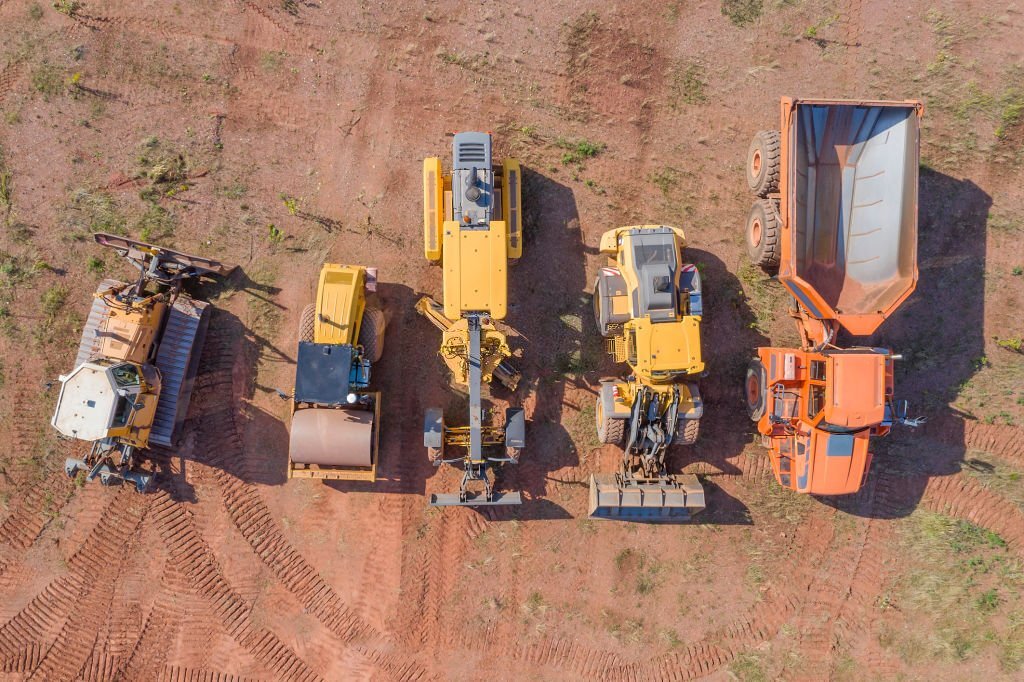
Excavators are versatile and powerful construction machines used in a wide range of industries for digging, demolition, material handling, and other tasks. With different types of excavators available, each designed for specific applications, it’s essential to understand their unique features and capabilities. This article provides a comprehensive guide to the various types of excavators, including mini excavators, crawler excavators, wheeled excavators, long-reach excavators, and specialized excavator variants. By exploring these excavator types, their functionalities, and their suitable applications, you can make informed decisions when selecting the right equipment for your construction projects.
Mini Excavators :
Mini excavators, also known as compact excavators, are smaller-sized excavators designed for maneuverability in confined spaces. They feature a compact footprint and are commonly used in residential construction, landscaping, and utility maintenance. Mini excavators typically have a weight range of 1 to 6 tons, making them suitable for light to moderate excavation tasks.
Crawler Excavators :
Crawler excavators, also called tracked excavators, are versatile machines equipped with tracks instead of wheels. These excavators offer excellent stability, traction, and maneuverability on uneven or soft terrains. Crawler excavators come in various sizes, ranging from small units to large, heavy-duty machines. They are widely used in construction projects, including earthmoving, trenching, digging foundations, and forestry applications.
Wheeled Excavators:
Wheeled excavators, as the name suggests, feature wheels instead of tracks. These excavators offer mobility and speed, making them ideal for applications that require frequent movement between job sites. Wheeled excavators are commonly used in road construction, urban development, and utility work where transportation on paved surfaces is necessary. They are known for their high-speed capabilities and can be equipped with outriggers for enhanced stability during operation.
Long-Reach Excavators :
Long-reach excavators are specialized variants designed with extended booms and arms. These excavators are used when additional reach is required, such as in deep excavation, dredging, riverbank maintenance, or demolition projects. The extended reach enables operators to work efficiently from a safe distance, minimizing the need for repositioning the machine. Long-reach excavators are available in various sizes to cater to different reach requirements.
Specialized Excavator Variants :
Apart from the standard excavator types mentioned above, there are specialized excavator variants designed for specific applications. These include:
- Amphibious Excavators: These excavators are equipped with specialized pontoons or tracks that allow them to operate in marshy or waterlogged areas. They are used in wetland projects, dredging, and waterway maintenance.
- Demolition Excavators: Demolition excavators are equipped with reinforced booms, arms, and specialized attachments to handle demolition tasks. These excavators often feature protective structures and additional safety measures for working in hazardous environments.
- High-Reach Excavators: High-reach excavators are purpose-built for tall structure demolition. They feature extremely long booms and arms to reach the heights of multi-story buildings while maintaining stability and precision.
- Vacuum Excavators: Vacuum excavators use suction and high-pressure water jets to safely excavate around buried utilities, minimizing the risk of damaging underground infrastructure. They are commonly used in utility locating, potholing, and non-destructive excavation.
Conclusion:
Understanding the different types of excavators and their unique features is crucial when choosing the right equipment for your construction projects. Whether you require a compact machine for tight spaces, a versatile crawler excavator for demanding terrains, a wheeled excavator for mobility, or a specialized variant for specific applications like long-reach or demolition, selecting the appropriate excavator type ensures optimal performance and efficiency.
Consider the nature of your project, job site conditions, and the specific tasks at hand when choosing the most suitable excavator. By utilizing the right type of excavator, you can enhance productivity, achieve precise digging and material handling, and ensure the successful completion of your construction endeavors.

